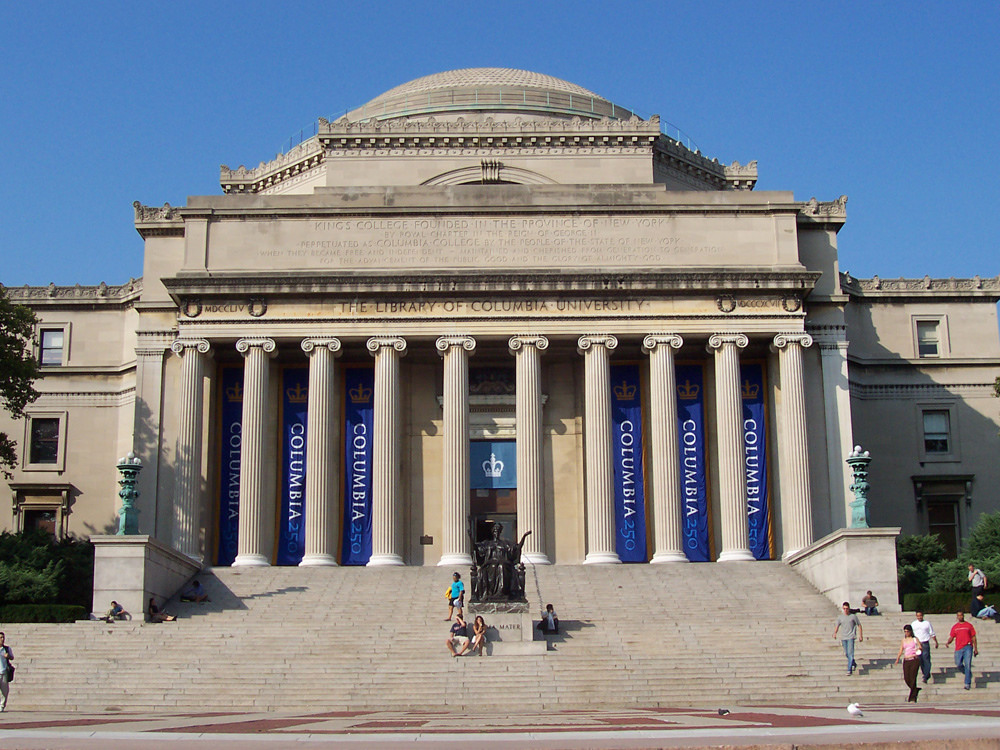 Photo from Flickr.
Photo from Flickr. As a freshman at Columbia University in September 2000, the toxic anti-Israel atmosphere burgeoned in front of my eyes with the start of the Second Intifada. My roommate, a political science major, went toe to toe with anti-Semitic professors in classrooms, who presented Israel as an apartheid, imperialist state. He received hate email for his “dissenting” views, and we felt compelled to lock our door at night. I thought to myself, “He could fight the fight better than me.”
I was silent.
The predecessors of Students for Justice in Palestine filled College Walk, physically intimidating Jews walking to the dorms.
The evidence appeared before me, but I remained silent.
Fifteen years ago, I was a music major at Columbia University and a Talmud major at the Jewish Theological Seminary, removed from university politics, both on campus and in the world at large. I had a purpose and a goal: Enter rabbinical school and serve the Jewish people as a pulpit rabbi. Israel was a personal subject; a place I knew I loved; an illustration to my daily prayerbook; a homeland to which my grandfather made aliyah at the age of 80, following three of his children and more than 20 grandchildren.
Late last month, the Columbia College Student Council voted to hold a referendum to gauge student support for whether the university should divest itself from certain Israeli companies (BDS). I was sad and disappointed. The university that allowed me to think critically now allows its students to promote a position of BDS, which hides behind the mask of anti-Semitism.
College students are running to their rabbis, fearful of speaking about Israel on their campuses.
I now recognize the consequences of remaining silent; if I had used my voice when I was a student, today’s students — many with no knowledge of Israel’s history and mission — would be facing a different college experience.
As a rabbi at Sinai Temple, I listen to the stories of Jews exiled from their home countries simply because they are Jews. For them, Israel was the only place of refuge in the world. So many of our parents and grandparents came to the United States to distance themselves from anti-Semitism. For the past century, they have lived the American dream, freely expressing their Judaism and love of Israel.
Yet, nothing has changed. College students are running to their rabbis, fearful of speaking about Israel on their campuses, hiding their Stars of David, and asking us what to do.
In fall 2007, Columbia University invited then-Iranian President Mahmoud Ahmadinejad to address the student population. Today, it is not only the former Iranian president but students in the classroom and on public sidewalks who spew hatred of Israel and of the Jewish people. While I understood as a student that my rabbinic career would include political activism and the responsibility to teach a love of Israel, I never imagined the need to prioritize the defense of the Jewish people and our right to exist in a sovereign state.
Today, as I see the attacks on Israel getting worse, I am speaking up. I am silent no longer.
On the last night of Hanukkah, I am scheduled to travel to Israel with the AIPAC Leffell Fellowship in an effort to teach rabbinical students from around the country and across denominations how to preach Israel from the pulpit, sharing the intricacies of Israel’s relationship with Jews, Christians and Muslims alike. I will explain how my closest friends are pastors, with our only common bond being a love of Israel.
It is easy to sit in a room, raise your hand to vote for a BDS referendum and tell the world the wrongs of Israel. It is difficult yet fulfilling to stand up, tell the truth and make friends across a divide to create a better tomorrow.
Israel can, should and will bring us together.
Today, I speak loudly. Not only for myself, but for all those students walking silently to their classes, who fear raising their voices. I speak for them so one day, they can speak for themselves.
Rabbi Erez Sherman is a rabbi at Sinai Temple.






















 More news and opinions than at a Shabbat dinner, right in your inbox.
More news and opinions than at a Shabbat dinner, right in your inbox.